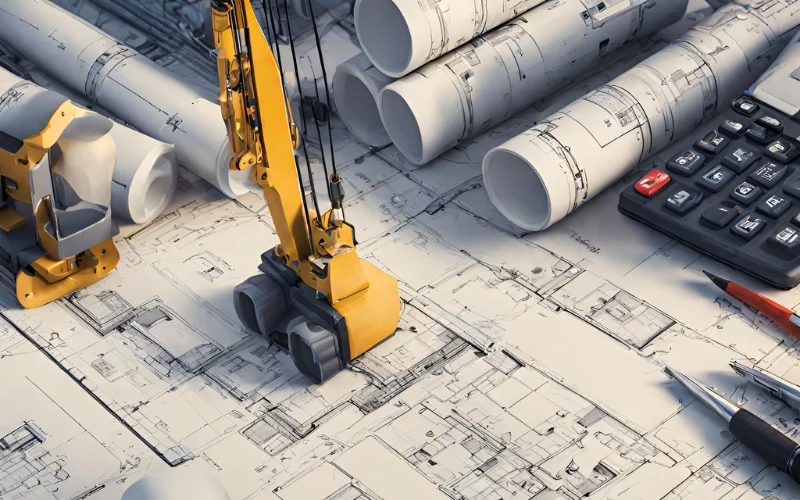In today’s rapidly evolving world, technology is not just a luxury but a necessity, permeating every facet of our lives, including the construction industry. Construction cost estimation is an integral part of any project, determining its feasibility, budgeting, and ultimately, its success. With the advent of groundbreaking technological advancements, the landscape of construction cost estimation has undergone a profound transformation, empowering professionals with unparalleled precision, efficiency, and accuracy.
Artificial Intelligence: Redefining Precision
Artificial Intelligence (AI) stands at the forefront of this revolution, reshaping the way construction cost estimation is conducted. Through the utilization of sophisticated algorithms and machine learning capabilities, AI enables construction professionals to analyze vast datasets with unprecedented speed and accuracy. By extrapolating patterns and trends from historical data, AI algorithms can generate highly precise cost estimates, taking into account various factors such as material costs, labor expenses, and project timelines.
Machine Learning Models: Enhancing Accuracy
Machine learning models, a subset of AI, play a pivotal role in enhancing the accuracy of construction cost estimation. These models leverage historical project data to identify correlations and patterns, allowing for more accurate predictions of future project costs. By continuously refining their algorithms based on new data inputs, machine learning models adapt and evolve, ensuring that construction cost estimates remain as precise as possible, even in the face of dynamic market conditions.
Building Information Modeling (BIM): Streamlining Processes
Building Information Modeling (BIM) has emerged as a cornerstone of modern construction cost estimation, revolutionizing the way projects are planned, designed, and executed. By creating digital representations of physical and functional characteristics of buildings, BIM enables construction professionals to visualize and simulate various aspects of a project, including cost estimation. Through the integration of BIM software with cost estimation tools, professionals can generate comprehensive estimates with unparalleled accuracy, while also optimizing resource allocation and minimizing waste.
3D Visualization: Enhancing Communication
One of the most significant advantages of BIM in construction cost estimation lies in its ability to facilitate enhanced communication and collaboration among stakeholders. By providing 3D visualizations of proposed projects, BIM enables construction professionals to convey complex concepts and ideas in a clear and intuitive manner, fostering greater understanding and alignment among project teams. This enhanced communication not only leads to more accurate cost estimates but also helps to identify potential issues and mitigate risks before they escalate.
Cloud Computing: Driving Efficiency
Cloud computing has emerged as a game-changer in the realm of construction cost estimation, offering unprecedented levels of flexibility, scalability, and accessibility. By leveraging cloud-based construction cost estimation software, professionals can access and analyze project data from anywhere, at any time, using any device with an internet connection. This level of flexibility not only enhances collaboration and communication among project teams but also enables real-time updates and adjustments to cost estimates, ensuring that they remain accurate and up-to-date throughout the project lifecycle.
Collaboration Tools: Fostering Connectivity
In addition to enhancing accessibility, cloud-based construction cost estimation software also provides a range of collaboration tools that facilitate seamless communication and coordination among project stakeholders. From shared document repositories to real-time chat and video conferencing capabilities, these tools empower construction professionals to collaborate effectively, regardless of geographical location or time zone. This enhanced connectivity not only streamlines the cost estimation process but also fosters a culture of transparency and accountability, ensuring that all stakeholders are aligned towards a common goal.
Summary:
Technology is revolutionizing construction cost estimation in ways that were previously unimaginable, empowering construction professionals with unprecedented levels of precision, efficiency, and accuracy. From AI and machine learning to BIM and cloud computing, the possibilities are endless, offering a glimpse into the future of construction project management. By embracing these technological advancements, construction professionals can unlock new opportunities for innovation and growth, driving greater success and sustainability in the built environment.

